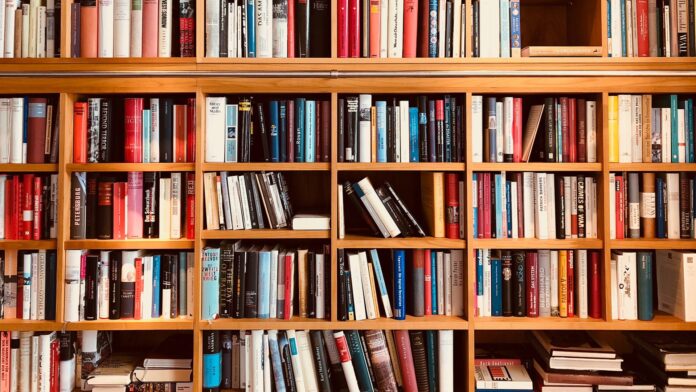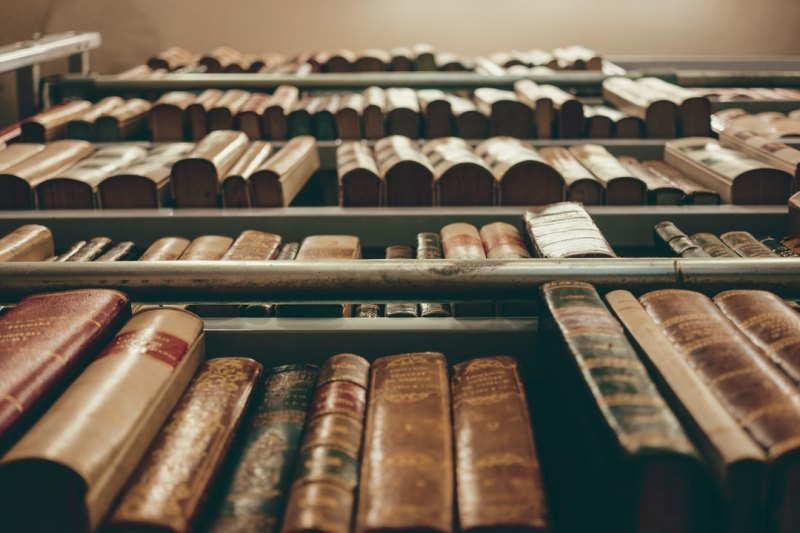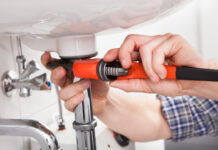As homeowners, you’re likely aware of the importance of humidity, or the moisture in the air, for your house and health. However, have you ever paid particular attention to the humidity level in your home library? Unless you’re a former librarian, collector, or especially passionate bibliophile, you might not have realized that humidity was even a factor you should consider when storing your books.
Like both high and low humidity levels in your home are bad for you, your family, and your space, both high and low humidity levels are bad for your library. Fortunately, there are steps you can take to monitor and adjust the humidity in that space and safely store your collection.
Books and Humidity
When you first begin to think about how your home’s humidity level can affect your personal library, you’re likely to think of high humidity as a problem. This is certainly correct—books kept in a space with excess moisture are more prone to mold and mildew, as well as dust mites and other pests, warping and discoloration, and other types of distortion to your cover and pages.
However, low humidity can have just as serious an effect as excess humidity will. Without some level of humid air, the pages of your books are more likely to become dry and brittle, making already fragile books more so and increasing the risk of damage to your collection as a whole.
Protecting Your Library
Now that you’re aware of the importance of indoor humidity levels on your books, you’re likely wondering how you can optimize the humidity in your space to protect your library. Before taking action, there are two especially critical steps—measuring the current level of moisture and knowing the best humidity level for your book collection. You can purchase a hygrometer or ask an expert to measure the moisture level of your home and this space in particular. As for the latter, experts typically agree that the ideal relative humidity for storing and protecting books will be no lower than 35% nor higher than 60%.
If you’ve taken these steps and your home’s humidity level is securely in the ideal range, you might not have to take any next steps. Your rare novel or NRSV bible collections are likely protected as far as the amount of moisture in your indoor air is concerned. Otherwise, you’ll want to raise or lower the humidity to keep your library safe.
Decrease high humidity levels to prevent mold and mildew.
If your home library is too humid, your books will be prone to mold, mildew, and various pests. You, too, can suffer from too much moisture in the air—too high a humidity level can lead to symptoms like lethargy and decreased energy. For both you and your books, consider purchasing a dehumidifier to remove excess moisture from the air to prevent mildew and mold growth as well as health problems.
Increase low humidity to prevent dry, brittle pages.
Conversely, a book collection left in an area with not enough moisture can become brittle in the dry air. Here, you can achieve a higher humidity level and protect your library by installing a humidifier, preventing dry skin for you and your family as well as dry pages for your books.
Indoor humidity is a crucial factor of human health, and it’s one of the most important qualities of an indoor environment that’s meant to store books. Whether you’re finding your NRSV bibles are becoming warped by too much moisture in the air or your favorite novel is becoming brittle, it’s a good idea to consult an HVAC professional as to the best way to proceed. Whether you need to add a humidifier, dehumidifier, or something else entirely, you’ll be glad to know that your books are safe and their readers will stay healthy.






















